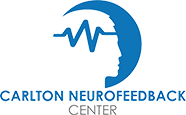
Depression
Rediscover Your Zest for Living
Depression is one of the leading causes of disability in the United States (NIMH). It’s a mental health illness characterized by sadness, hopelessness, and disinterest in usual hobbies, activities, and relationships with friends and family. If left untreated, it can lead some people to consider ending their lives out of despair. But it doesn’t have to be that way. At Carlton Neurofeedback Center, we have helped numerous patients escape the oppressive symptoms of depression and find the joy of living again.
One Patient’s Story
JoAnne K explains how she found relief for her depression through neurofeedback training. She writes:
“I have been going to Dr. Carlton for a fair amount of time originally for chiropractic care. It’s been a great help, but receiving neurofeedback has been life-changing for me. I started to become very severely depressed. No hope and barely hanging on. My depression is very long-standing. Neurofeedback is the only thing that has made a difference. I’m doing so much better, and Dr. Carlton and the whole team have been so very supportive. I tried so many things for so long that I can’t begin to tell you what a personal miracle it has been. I’m very grateful.”
Questions & Answers About Depression
What is depression?
Everyone has had times in their life when they felt down or blue. Having a diagnosis of Major Depression is the most common mental disorder in our country. It is a mood disorder that causes an unrelenting feeling of sadness and overall loss of interest in daily activities. Individuals suffering a major episode of depression are often unable to go about their necessary routines. Over 16 million American adults (6.7 percent of the adult population) suffered at least one major depressive episode in the past year (NIMH). Depression typically strikes during adolescence or early adulthood but can affect anyone at any age. Depression for some can last for a long time and become chronic, a diagnosis now called Persistent Depressive Disorder. Feeling down can interfere with your ability to enjoy any aspect of your life, family, and friends.
What causes depression?
Research shows depression can have many underlying causes, some of them neurological (Harvard Medical School) and others related to a person’s environment, genetics, medical conditions and temperament. According to Harvard Medical School, “Researchers believe that — more important than levels of specific brain chemicals — nerve cell connections, nerve cell growth, and the functioning of nerve circuits have a major impact on depression.” Helping the brain learn better ways to regulate its own mood is one of the goals of treatment.
Over 16 million American adults (6.7 percent of the adult population) suffered at least one major depressive episode in the past year (NIMH). Depression typically strikes during adolescence or early adulthood but can affect anyone at any age.
What causes depression?
According to Harvard Medical School, “Researchers believe that — more important than levels of specific brain chemicals — nerve cell connections, nerve cell growth, and the functioning of nerve circuits have a major impact on depression.”
How does neurofeedback training improve depression?
Neurofeedback training helps your brain build new, healthier nerve cell connections and helps correct the flow of neurochemicals in the brain. This helps you think and feel in a more positive, optimistic manner.
Neurofeedback training begins with a measurement of your underlying brainwave patterns with the use of a qEEG (Quantitative Electroencephalogram). A totally painless test, this information will allow Dr. Carlton to design a neurofeedback protocol to improve your overall brain function. The training sessions are 30 minutes each and are both easy to do and relaxing. Click here for more detailed information.
The best part – the improvements can last a lifetime!
We Can Help
Contact us today for a complimentary evaluation and see if neurofeedback training might be the answer you’re looking for. See my story and eBook and learn why people trust our neurofeedback clinic to help them address their depression with this non-invasive, pain-free technological breakthrough.



